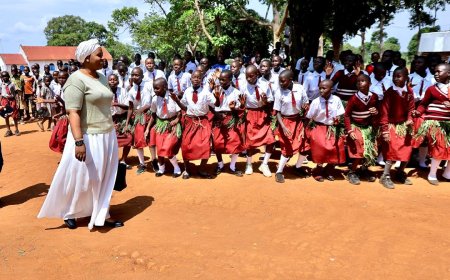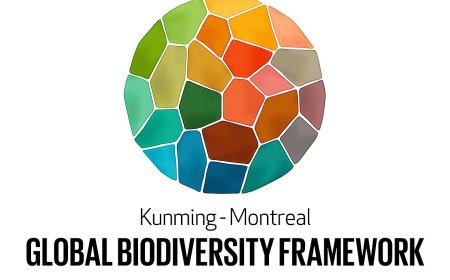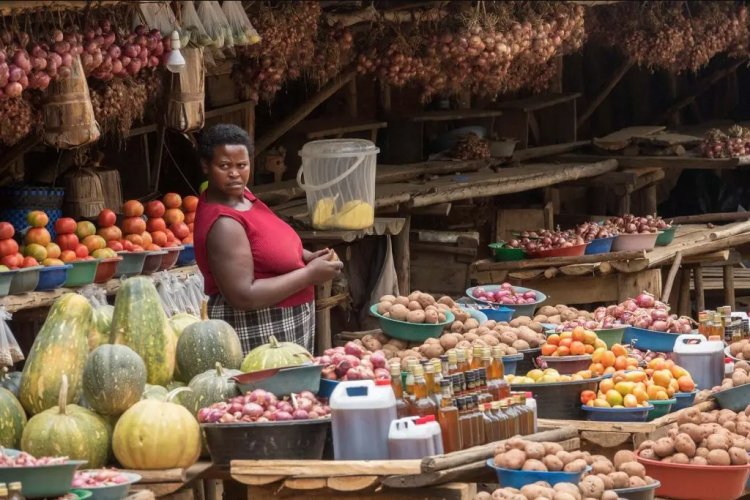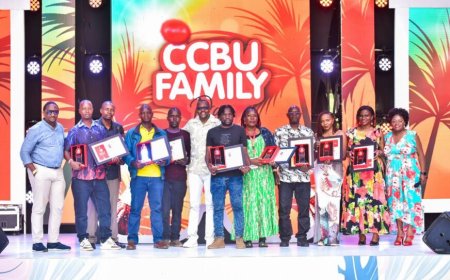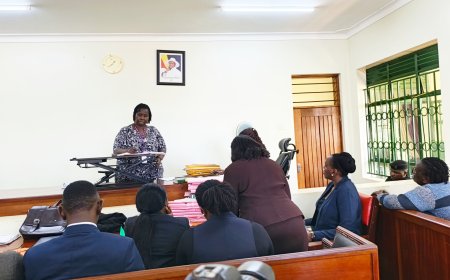Ugandan food: Our blood, life and identity
Ugandan food: Our blood, life and identity. For as long as history can remember, Uganda’s diversity in food and cuisine has been her pride.
For as long as history can remember, Uganda’s diversity in food and cuisine has been her pride. So much so, that the country is often referred to as the “food basket” of East Africa. This opinion piece celebrates the diversity in purpose and nutrient filled indigenous Ugandan foods that are now being seriously threatened by rival global food systems. We all know that eating is as much about meeting dietary needs as it is about power relations in society, changes in culinary habits, and cultural identity in meals provided. It is also about our health, making connections, uplifting our moods, lifestyle and of course, survival. Food is at the core of our cultures; it sustains and gives us lots of energy and enthusiasm. Ugandan foods are truly special, made up of history’s ingredients and nature’s servings. Served in different shades, colours and portions; orders for cooked food from a restaurant, market or busy street showcase this variation - (mereyona) a buffet of bits and pieces of all available foods in one serving or (kamukamu) single food-type and sauce per serving. To that fact, most eating joints, markets and downtown restaurants take their orders as mereyona or mere ki (buffet or single food) - you decide.
Unfortunately, the arrival and dominance of the global food system centred on supermarkets and industrial processed foods is destroying this sovereignty and pride. Our food sovereignty is the system in which we the people who produce, distribute, and consume food also control the mechanisms and policies of food production and distribution. Remember, as it was back in the 80s and 90s, with strong farmers unions and cooperatives. The identity derived from our food is deeply distinctive as it is a national pride that it is affirmed in our national anthem:
Oh, Uganda! the land that feeds us,
By sun and fertile soil grown;
For our own dear land,
We'll always stand,
The Pearl of Africa's Crown.
Uganda is known to have one of the highest levels of animal and plant species diversity in the world, with plant genetic resources ranging from rare and less known indigenous wild fruits (e.g. Ebwolo Annona senegalensis) and vegetables, e.g. Nakati the bitter tomato, Ethiopian eggplant (Solanum aethiopicum), animals and medicinal plants (e.g. Prunus africana Rosaceae or Ntasesa). Indigenous breeds of cattle are the main source of beef in Uganda, constituting almost 95 percent of the total cattle numbers. With all this richness and diversity, we are generally healthy and well fed.
In Buganda, the land of my descent, food is intertwined in how we live, and how we commune and relate to people that we meet. This is depicted in the countless proverbs telling of the interconnectedness of food to our sovereignty and brotherhood. For example, Oluganda kulya (“brotherhood is sharing”) suggests, that food is central to how we meet and build relationships. This recognition and celebration of food for its different purposes and meanings is profoundly imbued in family gatherings as well as cultural and national celebrations. What and how we eat inherently foments our relationships and our daily livelihood struggles. It is about celebration, as it is about passing down culture, purpose and community strength.
Unfortunately this history and fondness is now seriously threatened by imported and industrial processed foods sold in supermarkets. Sadly, despite the fact that Uganda is known for some of the world’s best pineapples, mangoes, maize, guavas and yams, many of these packed foods in supermarket aisles are imported! At the most, this new consumption trend connotes “advanced global consumers” whilst crippling the country’s backbone to the core. Let us have confidence in the Ministry of Trade and Investment’s “Buy Uganda Build Uganda” (BUBU) campaign to counteract this threat.
Some of my fondest memories growing up are around meal times. Breakfast was served with any one of these steamed foods; pumpkin, yam, cassava and potatoes. Lunches and dinners were equally colourful and varied. In fact, sometimes by the time meals were cooked, we were satiated by the season’s fruits such as mangoes, jackfruit and sweet yellow bananas. Consumption of this rich, local diversity has been our customary ways.
In addition to the different dietary portions, consumption of these varieties means that they are easily available and accessible and that growers ensure their preservation and availability. Some foods and vegetables like sukuma wiki and posho (ugali) have cultural connections across East Africa. Of course, and chapatis, samosas and the Rolex remind us of the former Indian settlers back in the 1960s.
This arrival and dominance of the global food system centred on supermarkets and industrial processed foods is eroding the country’s sovereignty. Fuelled by the current global food regime, corporations and market institutions are increasingly dominating our food system. This is reinforced by the introduction and massive campaign of new commercial varieties of rice, cereals, guavas and bananas that are bred to be high-yielding or so-called disease-tolerant. Seedlings of these products are stocked widely in shops and marketed as best easy-to-grow and productive varieties.
Fortunately, some NGO actors like Kulika Uganda, PELUM and the Slow Food movement are proactively increasing our access to knowledge on traditional and indigenous foods to counteract these modern forces of change. They support farmer groups and individual growers with distinct knowledge on growing and preserving indigenous foods, seed saving and sharing for sustainability and common rights.
It is important to acknowledge that culture is dynamic and almost always at a crossroads between different external and modern forces and the traditional long-held knowledge and practices. Imperatively as a society, caution is critical if we are going to maintain our food agrobiodiversity. According to a report on sustainable diets for all by the HIVOS, it is estimated that Uganda is losing about 10-11% of its indigenous food varieties each decade. It is reported that of the estimated 1,400 indigenous plant species (many of whose potential is yet to be exploited), 30 species are known to be endangered, 43 are rare and 10 are vulnerable (Biodiversity International, 2019). To underpin this loss of food varieties and why we must act now, think about; bambara groundnut (empande in central region, kali in acholi landa), black plum (jambula), canarium (mpafu), black berries and many other foods that are at risk of extinction. Think about what this loss means to our diets and the general implication to our health.
Now is the time to engage and act in support of our Ugandan foods with the conviction that “we are what we eat”.
For God, my country and our Food!
Sarah Nakame is a development management practitioner and indigenous foodist. 











































































